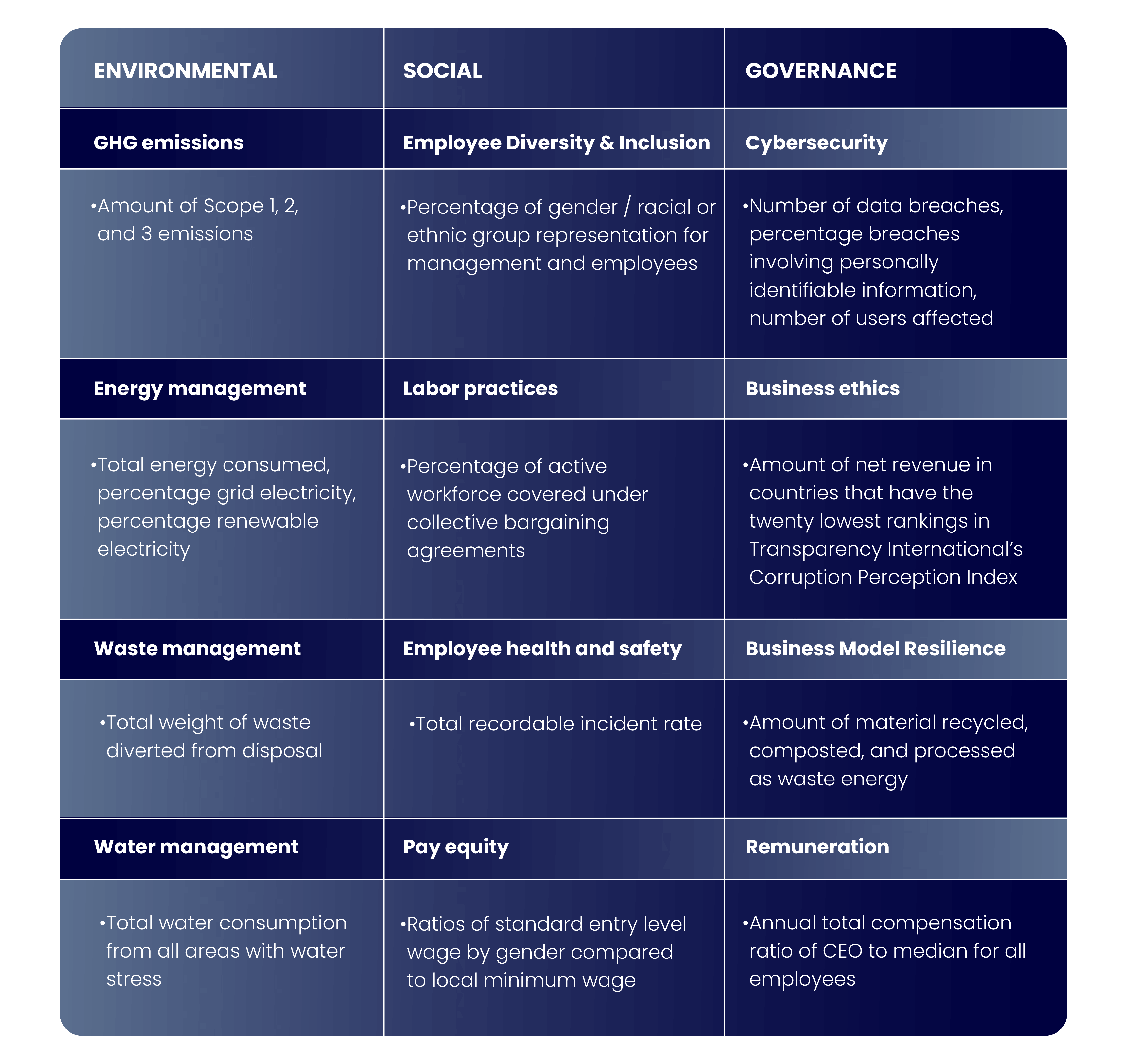what is ESG metrics
Understanding ESG Metrics
Environmental, Social, and Governance (ESG) metrics are performance indicators used to measure a company's commitment and effectiveness in addressing various ESG issues. These metrics help organizations assess how their operations align with sustainable practices and corporate responsibility. Here's a deeper look into ESG metrics:
1. Definition and Purpose
ESG metrics quantify a company's performance related to environmental stewardship, social responsibility, and governance practices. These metrics provide a scientific method for organizations to track and report on their ESG initiatives, helping to gauge their impact and effectiveness. They are increasingly important for investors, stakeholders, and consumers who seek to evaluate corporate sustainability and ethical practices.
2. Components of ESG Metrics
-
Environmental Metrics (E): These measure a company’s impact on the planet, including carbon emissions, energy usage, waste management, and water usage. They assess how well an organization manages its environmental footprint.
-
Social Metrics (S): These focus on a company’s relationships with its employees, customers, and the community. Indicators include labor practices, diversity and inclusion, human rights, and community engagement.
-
Governance Metrics (G): These evaluate the structures and processes for decision-making within a company. Important aspects include board composition, executive pay, shareholder rights, and transparency.
3. Importance of ESG Metrics
Companies that actively measure and report on their ESG metrics can enhance their reputation, improve stakeholder trust, and potentially achieve better financial performance (as sustainable business practices often correlate with operational efficiency). Investors increasingly consider ESG metrics when making investment decisions, as they reflect a company’s long-term viability and risk management capabilities.
4. Examples of ESG Metrics
- Greenhouse gas emissions (Environmental)
- Percentage of women in leadership roles (Social)
- Board diversity (Governance)
- Community investment (Social)
- Waste management efficiency (Environmental)
5. Conclusion
As ESG concerns become more prominent in today's global economy, having robust ESG metrics is essential for companies aiming to operate sustainably and ethically. Leveraging these metrics not only helps in assessing current performance but also supports the strategic planning necessary for future growth and compliance with increasing regulatory standards.
For further insights into ESG metrics, you can explore the following resources:
Understanding and implementing effective ESG metrics can significantly benefit organizations in their commitment to sustainability and social responsibility.
Sources


Related Questions
Work fast from anywhere
Stay up to date and move work forward with BrutusAI on macOS/iOS/web & android. Download the app today.
